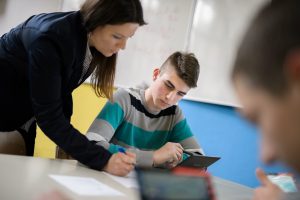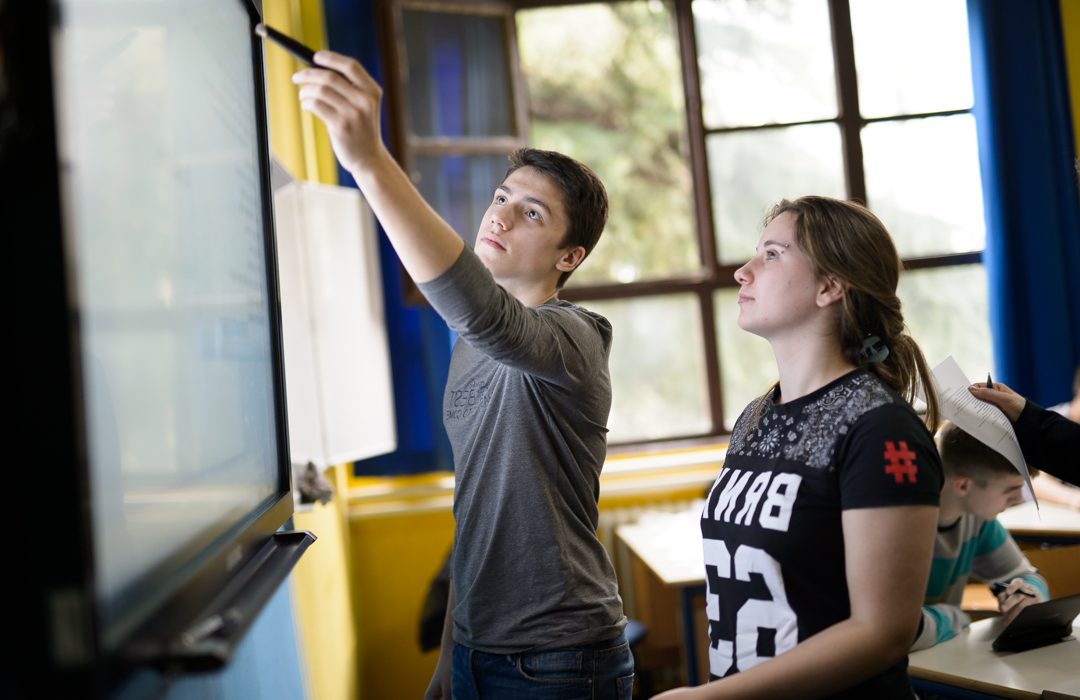
Image credit: UNICEF Montenegro and Dusko Miljanic
The 2016 survey demonstrated that 52% of parents want to obtain information on how to support their child to use the internet safely and effectively via the child’s school. The proportion is even higher (59%) for parents living in rural areas where the digital divide is greater. Having in mind that primary education is mandatory for all children in Montenegro, incorporating digital literacy education in the curriculum would mean supporting every child to gain the basic skills needed for digital citizenship in the 21st century. At present, one in five parents and one in 10 children in Montenegro do not use the internet. These are mostly families from a low socio-economic background and living in rural areas who can be reached through primary schools.
In order for schools to prepare children for digital citizenship, teachers need to be supported to acquire the necessary digital skills. However, in Montenegro, there is currently no sufficient information on teachers’ internet use and skills. To address this gap, UNICEF in Montenegro, the Ministry of Education and Ipsos research agency, in partnership with UNICEF Innocenti and LSE, developed a methodological toolkit for conducting a research on primary and secondary school teachers’ internet use.
This is the first survey on teachers’ practices carried out by a Global Kids Online country partner and should be seen as an initial effort that others can build on and improve. The teachers survey has not yet been implemented and tested as widely as the Global Kids Online child and parent survey, but represents a starting point for continued research.
The survey seeks to explore teachers’ internet access and use, their skills and online activities, current use of ICTs in teaching, and the extent to which teachers offer internet guidance, support, and mediation to the children they teach. Data collection is ongoing and it will be used for developing and implementing a strategy on digital literacy education in Montenegrin schools.
More about the earlier survey on children’s internet use
UNICEF Office in Montenegro – projects and campaigns
Post author: Jelena Perović, UNICEF Montenegro
You can sign up to receive the latest research news from Global Kids Online by email. Please forward this message to anyone you think may be interested.








